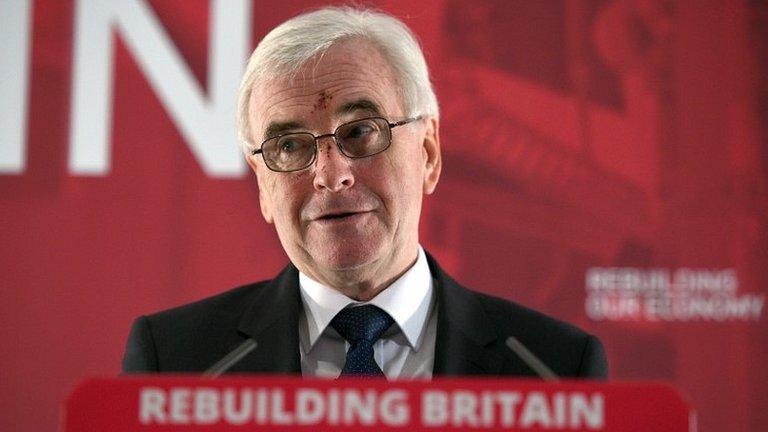Budget 2018: 'Everything is just stretched to its limit'
- Published
"They say they're putting more money in but the maths doesn't add up"
Chancellor Philip Hammond will be at the despatch box in Westminster at 15:30 GMT on Monday, announcing all his big decisions on the spending power of government, and where he'll get the cash from. But what do people want to hear over 200 miles away, in the Yorkshire seaside town of Scarborough?
It's mid-morning and the brilliant autumn sunshine is sparkling on North Bay. Dave and Simon have been out walking with Fern the spaniel and Bauer the labrador.
Like many people, Dave has no idea that the Budget is on Monday.
"Did you not know?" Simon says to his friend. "Well, I knew it was the Budget on Monday."
The men, both in their 50s, are dubious about the way politicians talk about spending.
"There are more people requiring services," says Simon. "We're an ageing population and there are more children in schools. It's alright them saying they're putting more money in, but per individual it doesn't equate."
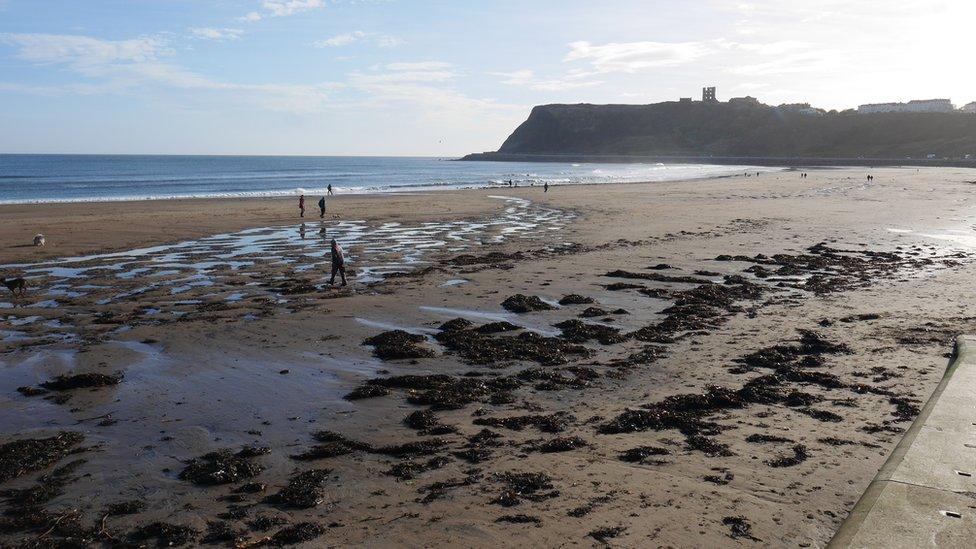
Scarborough has been dubbed Britain's "low-pay capital"
Like many locals, the men are worried about Scarborough Hospital, which is part of York Teaching Hospital NHS Foundation Trust. It is facing a reorganisation and locals fear departments could be closed in their town.
"It's a big worry for a town like Scarborough. You can't go to York every time you've got a serious ailment," says Dave. "We give millions away to other countries and we're seeing our essential services decline."
As their dogs dance around a ball, we dance around the B-word, Brexit. "The focus is on something much bigger and it's allowing them to detract from the services we all need," says Dave.
The hospital and much-needed funding for local services comes up time and again, as do the congested A64 and worries about local schools needing new roofs.
But Scarborough's problems are acute. It's been dubbed Britain's "low-pay capital" with average earnings of just over £19,000 - a third less than the UK average.
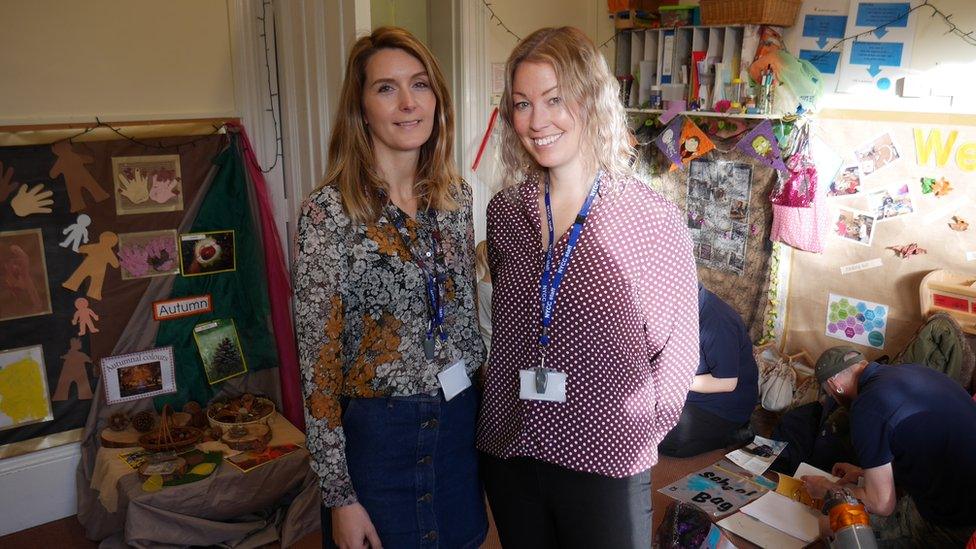
Claire and Kathryn are feeling school funding pressures
It's the combination of this plus cuts to the local authority spending on nursery school places that's hitting Kathryn Firth and Claire Curtis - co-heads at Childhaven Community School.
"We are getting a substantial amount of vulnerable families that need extra support," says Claire. "The government put these pressures on us, but actually they're not giving us the funding to do what they want."
As we talk, a parade of three-year-olds in witches' hats march through, past the bright display of conker paintings and into the den full of teddy bears and books. The room is busy with laughter and games.
But the women are plagued with worry. "We've had to have a staff restructure which means the quality of the teaching is in jeopardy," explains Kathryn. "Staff are working probably harder than we've ever worked before and everything is just stretched to its limit."
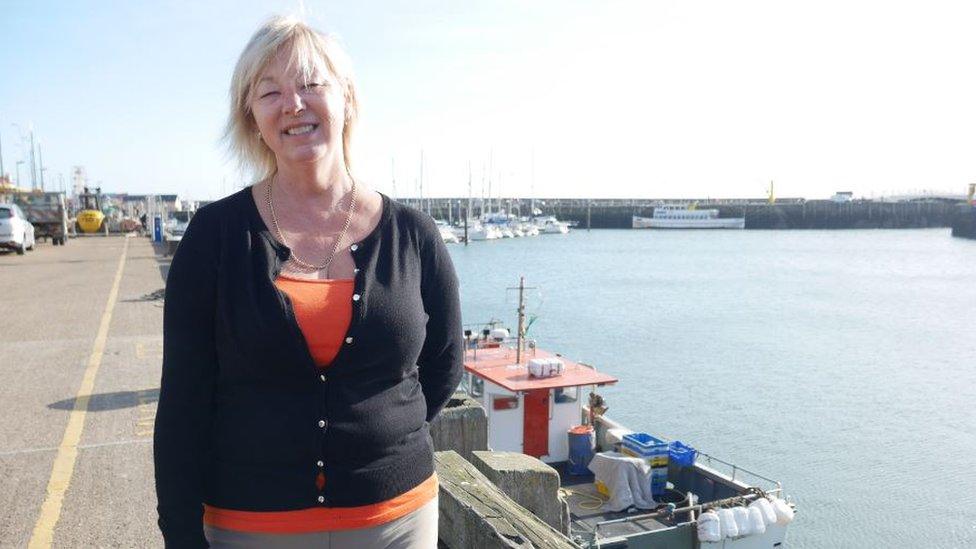
Dawn says some families are at breaking point
It's a view mirrored by Dawn Stephenson who manages emergency accommodation for 16-to-24-year-olds in the town.
Since the financial crisis, demand for services has risen but government funding has fallen.
"If a teenager is struggling with school or their mental health, or in need of social services, families are at breaking point," she says. For her, help would come from being better connected. "We are an hour away from the nearest motorway, we're so isolated regarding transport links and facilities for young people."
In this seaside town, a quarter of jobs are in tourism - historically this was the place to visit. When the baroque facade of the Grand Hotel was built in 1867 it was the largest hotel in Europe. You can stay there now for as little as £35 a night - in spite of a £7m refurbishment. Traditional roles in fishing and farming are in decline.
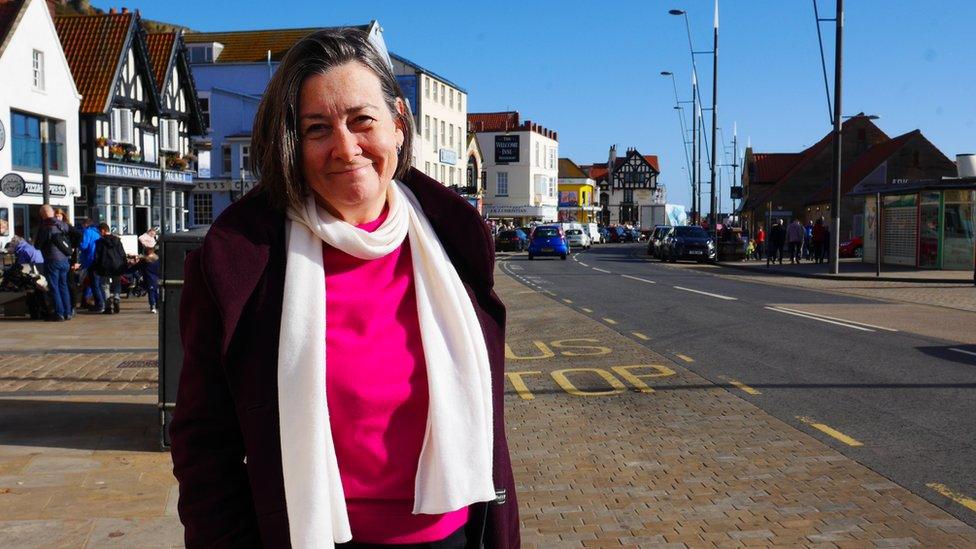
Gill says the area needs infrastructure funding
"It has its wonderful side, living in a place like this, lots of people see that, but scratch the surface and you really see that people need help," says Gill Cookson, an economic historian who lives out on the moors.
"A lot of what of London can do for us is what we can't do for ourselves - provide the infrastructure, get the railway line sorted out and get some bus services in place. That would really make a difference to get people to and from work."
And that is starting to happen. In fact, Yorkshire and the Humber is the only region in the UK increasing working hours and has created the most jobs - according to the latest set of ONS data, external.
Just outside the town, McCain chips have invested £100m in expanding their site.
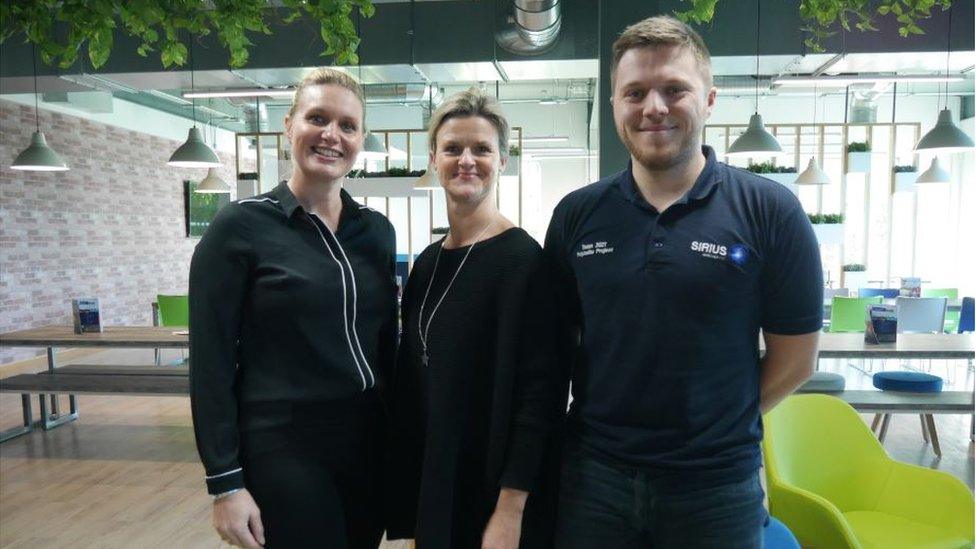
Katie, Emma and Asher love being able to work near their hometown
The former Scarborough Building Society office is the new HQ for Sirius, a mining business worth £3.2bn. It plans to extract potash, used in fertiliser, from beneath the moorland, creating 1,000 jobs.
For new recruit Asher Haynes, getting to be a geologist near his hometown is a treat.
"Most of my friends have had to go off to get work in other cities, there aren't as many opportunities here and it's projects like this that will bring that to the area."
He and co-workers Katie Castleton and Emma Whitaker stressed the value of good jobs near home, and want the government to invest in the road and rail infrastructure, plus educational training, to keep things motoring on.
"The expectation is you'll always have to leave the area to get that dream job," says Katie. "The opportunity to be near family and friends in a beautiful part of the country is really exciting."
- Published26 October 2018

- Published25 October 2018
